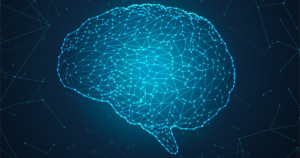Quantum Computing: Understanding Advances in Cutting-Edge Technology
Quantum computing is on the horizon of technological evolution, promising to revolutionize the way we process information. In this article, we’ll delve deep into the quantum realm, exploring the fundamental principles, historical milestones, and the potential it holds for the future. Buckle up; this is a journey through the quantum frontier!
Quantum Computing Fundamentals

Quantum Bits (Qubits) Explained
At the heart of quantum computing are qubits, the quantum counterparts of classical bits. Unlike their binary siblings, qubits can exist in multiple states simultaneously, a phenomenon known as superposition. This unique property allows for the exponential increase in computational power.
Imagine a classical bit that can be both 0 and 1 at the same time. This is quantum superposition, a game-changer that underpins the power of quantum computing. It enables the simultaneous exploration of multiple solutions, making complex problems solvable in record time.
Quantum Entanglement: The Mysterious Connection
Entanglement is the quantum world’s magic trick. When two qubits become entangled, their states become interconnected, even if separated by vast distances. This mysterious connection plays a vital role in quantum communication and cryptography.
Quantum Gates and Operations
In the quantum world, gates and operations manipulate qubits, allowing for complex calculations. From the Hadamard gate to the CNOT gate, these operations are the building blocks of quantum algorithms.
Quantum computing leverages unique quantum gates to manipulate qubits. The Hadamard gate, for example, puts qubits into superposition, while the CNOT gate enables controlled operations between qubits. These gates, along with their quantum counterparts, form the basis of quantum algorithms, allowing for the execution of complex tasks.
Historical Perspective
Early Pioneers in Quantum Computing
The journey of quantum computing started with visionaries like Richard Feynman and David Deutsch, who laid the theoretical groundwork. Their work set the stage for the technological leaps we see today.
Richard Feynman, a Nobel laureate in physics, introduced the idea of quantum computing in 1981. He believed that simulating quantum systems with classical computers was a formidable challenge. David Deutsch expanded on this concept, proposing the first universal quantum computer.
Milestones in Quantum Computing Development
From the first quantum algorithms to the realization of quantum supremacy, we’ll explore the major milestones that have shaped the quantum landscape.
In 1994, Peter Shor devised an algorithm that could efficiently factor large numbers, posing a potential threat to classical encryption systems. This algorithm demonstrated the groundbreaking potential of quantum computing in the realm of cryptography.
Quantum Computing vs. Classical Computing
Key Differences and Similarities
A comparative analysis of quantum and classical computing, highlighting the fundamental distinctions and the shared principles that both paradigms rely upon.
Quantum computing and classical computing differ fundamentally in their approach to processing information. Classical computers use bits, representing data as either 0s or 1s, whereas quantum computers use qubits, which can exist in multiple states simultaneously. This key difference enables quantum computers to solve certain problems exponentially faster than their classical counterparts.
Limitations of Classical Computing
While quantum computing offers tremendous potential, it’s essential to understand the limitations of classical computing, which quantum aims to overcome.
Classical computers, despite their ubiquity and power, face limitations when dealing with certain types of problems. For example, factoring large numbers into their prime components is a computationally intensive task for classical computers. This limitation is where quantum computing shines, as algorithms like Shor’s can efficiently solve such problems.
Quantum Hardware

Quantum Processors: Types and Evolution
We’ll explore the various types of quantum processors, including superconducting qubits, trapped ions, and topological qubits, and how they have evolved over time.
Quantum processors come in different flavors, each with its unique characteristics. Superconducting qubits are among the most common and use superconducting materials to operate at extremely low temperatures. Trapped ions involve precisely controlled ions held in electromagnetic traps, while topological qubits rely on exotic particles called anyons, known for their topological properties.
Cooling Systems: Keeping Qubits Ultra-Cold
To harness the power of qubits, they need to be kept at incredibly low temperatures. We’ll delve into the cooling systems that enable this feat.
Maintaining qubits at near absolute zero temperatures is a formidable task. Advanced cryogenic systems are used to achieve these ultra-cold conditions, ensuring that qubits remain in their delicate quantum states. Without this extreme cooling, qubits would decohere and lose their quantum properties.
Quantum Algorithms
Shor’s Algorithm: Breaking RSA Encryption
Shor’s algorithm, a quantum marvel, has the potential to break the encryption schemes that safeguard our digital world. We’ll uncover its implications.
Shor’s algorithm, devised by Peter Shor in 1994, shook the world of cryptography. This quantum algorithm can efficiently factor large numbers, a task considered highly challenging for classical computers. Its implications for breaking RSA encryption and potentially compromising digital security have prompted the search for quantum-resistant encryption methods.
Grover’s Algorithm: Fast Database Search
Grover’s algorithm showcases the ability of quantum computing to accelerate database searches exponentially. Discover how it works and its real-world applications.
Grover’s algorithm, invented by Lov Grover in 1996, is the quantum equivalent of a search engine on steroids. It can search an unsorted database of N entries in O(√N) time, a significant improvement over classical algorithms. This speedup has applications in tasks like unstructured database searches and combinatorial problems.
Quantum Supremacy and Google’s Achievement
We’ll discuss the momentous achievement of quantum supremacy, where quantum computers outperform classical ones, and Google’s pioneering role in this breakthrough.
Quantum supremacy is a milestone in quantum computing where a quantum computer performs a specific task faster than the most advanced classical supercomputer. In 2019, Google claimed to have achieved quantum supremacy using their 53-qubit quantum processor, Sycamore. This achievement marked a watershed moment in the field, demonstrating the practical potential of quantum computing.
Quantum Applications
Cryptography and Data Security
Quantum computing poses a threat to current encryption methods, but it also offers innovative solutions for secure quantum communication.
Quantum computing poses a double-edged sword for cryptography. On one hand, Shor’s algorithm threatens classical encryption, while on the other, quantum key distribution (QKD) offers a new level of security. QKD uses the principles of quantum entanglement to create unbreakable encryption keys, securing communication against quantum attacks.
Drug Discovery and Molecular Simulation
Explore how quantum computing accelerates drug discovery by simulating complex molecular interactions with incredible precision.
The pharmaceutical industry is a prime beneficiary of quantum computing’s power. By simulating complex molecular interactions at a quantum level, researchers can dramatically accelerate the drug discovery process. This not only reduces the time and cost of developing new drugs but also opens the door to personalized medicine based on an individual’s unique genetic makeup.
Optimization Problems in Various Industries
From supply chain management to financial modeling, quantum computing has the potential to optimize operations across a myriad of industries.
Quantum computing’s optimization capabilities are highly valuable across diverse sectors. Industries can harness its potential to streamline complex logistics, improve financial modeling, and enhance resource allocation. The quantum advantage lies in its ability to explore a vast solution space simultaneously, solving optimization problems at lightning speed.
Quantum Computing Companies
IBM: A Leader in Quantum Computing
IBM is at the forefront of quantum research and development. Learn about their contributions and the quantum systems they offer.
IBM’s Quantum Experience initiative offers cloud-based access to their quantum processors, allowing researchers and developers to experiment with quantum computing. IBM’s contributions to quantum research and its continuous efforts to advance the technology make it a significant player in the field.
D-Wave: Pioneering Quantum Annealing
D-Wave’s quantum annealing technology takes a different approach to quantum computing. We’ll examine their unique contributions to the field.
D-Wave, a Canadian company, specializes in quantum annealing technology. Their quantum processors are tailored for optimization problems and quantum machine learning. While different from gate-model quantum computers, D-Wave’s approach has found applications in fields like financial modeling and machine learning.
Rigetti: Advancing Quantum Cloud Services
Rigetti is making quantum computing accessible through cloud services. Discover their role in democratizing quantum computing.
Rigetti offers cloud-based quantum computing services, allowing developers to access quantum processors via the cloud. This democratization of quantum technology fosters collaboration and innovation, bringing quantum computing within reach of a broader community of researchers and entrepreneurs.
Quantum Computing’s Environmental Impact

Energy Consumption and Sustainability Concerns
Quantum computing’s energy demands are substantial. We’ll discuss the environmental implications and the race for more energy-efficient quantum technologies.
Quantum computing, particularly at cryogenic temperatures, requires substantial energy for cooling. As the technology scales, concerns about its environmental impact have grown. Researchers are actively seeking ways to reduce the energy footprint of quantum computing, from optimizing cooling systems to developing more energy-efficient qubit architectures.
Potential Solutions and Green Quantum Computing
Researchers are actively working on green quantum computing solutions. Learn about their efforts to make quantum technology eco-friendly.
Efforts to make quantum computing more environmentally friendly include developing more energy-efficient qubit architectures and exploring advanced cooling methods. By addressing the energy consumption and sustainability challenges, quantum technology can become more ecologically responsible and aligned with global efforts to combat climate change.
Quantum Computing in Everyday Life
The Future of Quantum Computing in Consumer Tech
What does the future hold for consumer technology? From ultra-fast smartphones to secure data storage, quantum computing’s impact on everyday life is just around the corner.
The integration of quantum computing into consumer technology holds exciting prospects. Quantum-enhanced processors in smartphones could exponentially increase computing speed. Secure quantum communication can safeguard personal data, while quantum-inspired algorithms can personalize recommendations and streamline daily tasks.
Impacts on Artificial Intelligence and Machine Learning
Quantum computing has the potential to supercharge AI and machine learning. We’ll explore how quantum algorithms can revolutionize data processing and analysis.
Quantum-enhanced machine learning algorithms can process vast datasets with unparalleled speed and accuracy. This can lead to breakthroughs in areas like natural language processing, image recognition, and predictive analytics. Quantum AI has the potential to transform industries by providing solutions that were previously beyond reach.
Quantum Computing in Research
Contributions to Scientific Discoveries
Quantum computing is unlocking new frontiers in scientific research. We’ll delve into its role in fields such as materials science, chemistry, and physics.
Quantum computing enables scientists to simulate complex quantum systems with remarkable precision. This has applications in materials science, where researchers can design new materials with specific properties. Quantum simulations are also vital in the study of chemical reactions and fundamental physics.
Collaborations with Traditional Computing
While quantum computing is a rising star, it often works in tandem with classical computing. Discover the symbiotic relationship between these two paradigms.
Quantum computing and classical computing are not competitors but collaborators. Hybrid quantum-classical algorithms leverage the strengths of both systems. Quantum computers can solve specific subproblems more efficiently, while classical computers handle the rest. This symbiotic relationship paves the way for practical quantum computing applications.
Quantum Computing and National Security
Implications for Cybersecurity
The advent of quantum computing has significant implications for cybersecurity. We’ll discuss the race to develop quantum-resistant encryption techniques.
The emergence of quantum computing poses a significant threat to classical encryption methods. Shor’s algorithm, with its ability to efficiently factor large numbers, compromises widely-used encryption standards. The race is on to develop quantum-resistant encryption techniques, ensuring data security in the quantum era.
International Race for Quantum Supremacy
Countries and companies are in a race to achieve quantum supremacy. We’ll explore the geopolitical aspects and the global quest for dominance in this field.
Quantum supremacy is not just a technological milestone; it has geopolitical implications. Nations and companies worldwide are investing in quantum research to secure their positions in this emerging technology. The race for quantum supremacy is driven by the potential to gain a competitive edge in areas like cryptography, AI, and defense.
Quantum Computing Challenges

Error Correction and Quantum Noise
Quantum computers are susceptible to errors due to quantum noise. Learn about the challenges of error correction and the quest for fault-tolerant quantum systems.
Quantum computers are inherently noisy due to their susceptibility to external influences. Error correction codes are essential to address these issues. Developing fault-tolerant quantum systems is a significant challenge, as errors can compromise the results of complex quantum algorithms.
Scalability and Cost Considerations
Scalability is a crucial factor in realizing the potential of quantum computing. We’ll discuss the hurdles and costs associated with building large-scale quantum processors.
Scalability is a critical aspect of quantum computing. Building larger quantum processors is necessary to tackle more complex problems. However, this comes with challenges in terms of cost, as well as the need for precise engineering to maintain the quantum properties of qubits as the system scales.
The Quantum Workforce
Preparing for Quantum Careers
The quantum era creates new career opportunities. Find out what skills and knowledge you need to prepare for a career in quantum computing.
As the quantum industry grows, so do career opportunities. Quantum experts, programmers, and engineers are in high demand. To prepare for a quantum career, consider gaining expertise in quantum algorithms, quantum programming languages, and quantum hardware, and staying up-to-date with the latest advancements.
Educational and Training Opportunities
Educational institutions and organizations are offering quantum training programs. We’ll provide insights into the resources available for learning quantum concepts.
Educational institutions and online platforms offer quantum courses and training programs. Universities and tech companies often provide specialized quantum computing courses, teaching the fundamentals of quantum mechanics, quantum programming, and quantum algorithms. These programs help individuals acquire the skills needed to excel in quantum careers.
Quantum Computing Ethics
Ethical Dilemmas and Privacy Concerns
As quantum technology advances, ethical questions arise. Explore the potential dilemmas, such as quantum-enhanced surveillance and privacy concerns.
Quantum technology raises ethical questions about its potential applications. Quantum-enhanced surveillance, for example, could raise concerns about privacy and civil liberties. Ethical considerations are essential in shaping policies and regulations to ensure responsible use of quantum technology.
Regulations and Responsible Development
We’ll discuss the need for regulations in the quantum realm and the importance of responsible development to ensure ethical use.
As quantum technology advances, regulatory frameworks are necessary to address ethical and safety concerns. Responsible development involves establishing guidelines and standards for the research, development, and deployment of quantum technology. Ensuring transparency, accountability, and adherence to ethical principles is essential to maintain public trust in the use of quantum computing.
Quantum Computing and Sci-Fi

Depictions in Pop Culture
Quantum computing often appears in science fiction. We’ll explore its portrayal in books, movies, and TV shows, and the impact of these depictions on public perception.
Science fiction has long been fascinated with the concept of quantum computing. From quantum supercomputers that solve complex problems to quantum teleportation, quantum technology has inspired imaginative storytelling in books, movies, and TV shows. These depictions shape public perception and foster curiosity about the real-world potential of quantum computing.
The Fine Line Between Science and Fiction
While sci-fi sparks the imagination, we’ll distinguish between what’s possible in quantum computing and what remains purely speculative.
Quantum computing in science fiction often pushes the boundaries of scientific understanding, blurring the line between fact and fiction. While many sci-fi concepts are rooted in real scientific principles, it’s essential to differentiate between what’s currently feasible in quantum computing and what remains in the realm of speculation and creative storytelling.
Section 16: The Quantum Internet
Quantum Communication and Unbreakable Encryption
The quantum internet promises unhackable communication. We’ll delve into quantum key distribution and its potential to revolutionize secure communication.
The quantum internet is set to redefine secure communication. Quantum key distribution (QKD) offers a quantum-safe method for encrypting data, making it practically unbreakable by classical or quantum attacks. This technology could transform online privacy and data security by ensuring confidential communication.
Quantum Networking’s Global Vision
Explore the ambitious plans for a global quantum internet and its transformative potential in a connected world.
The development of a global quantum internet is on the horizon. Envision a network where quantum-encrypted data flows securely between countries, connecting devices with unprecedented security. This vision could revolutionize industries, from finance to healthcare, by ensuring the privacy and integrity of digital communication.
Section 17: Quantum Computing in Space Exploration
Applications in Space Science and Exploration
Quantum computing’s high-speed calculations are a boon to space research. We’ll look at its applications in astrophysics, space navigation, and more.
Space agencies and researchers are exploring quantum computing’s potential in space science. It can simulate the behavior of complex celestial bodies and optimize spacecraft trajectories. Quantum computing aids in tasks like astrophysical simulations, space weather forecasting, and space navigation, ultimately advancing our understanding of the cosmos.
Quantum Communication for Interplanetary Missions
Learn how quantum communication could revolutionize data transfer during interplanetary missions, enabling real-time communication with distant spacecraft.
Interplanetary missions face a significant challenge: the vast distances that data must travel. Quantum communication could revolutionize this by enabling real-time, secure data transfer between Earth and spacecraft. It promises to enhance remote exploration, enabling more timely decision-making and scientific discovery.
Section 18: Quantum Computing’s Role in Healthcare
Advancements in Medical Imaging and Diagnosis
Quantum computing offers unprecedented speed and accuracy in medical imaging and diagnosis. We’ll explore the potential impact on healthcare.
In healthcare, speed and precision are of paramount importance. Quantum computing can significantly accelerate medical imaging processes, such as MRI and CT scans, leading to quicker and more accurate diagnoses. This innovation has the potential to improve patient care and enhance the capabilities of healthcare professionals.
Drug Development and Personalized Medicine
Discover how quantum computing accelerates drug discovery and enables personalized treatment plans, ushering in a new era of healthcare.
Drug development is a time-consuming and expensive process. Quantum computing can simulate molecular interactions at a level of detail that classical computers cannot achieve. This accelerates the discovery of new drugs and allows for personalized medicine, tailoring treatments to an individual’s unique genetic makeup.
Section 19: Quantum Computing and Future Possibilities
Quantum Cloud Services for Wider Adoption
The emergence of quantum cloud services opens the door for broader access to quantum computing. We’ll discuss the democratization of quantum technology.
Quantum cloud services, offered by companies like IBM and Rigetti, are democratizing access to quantum computing. Researchers, developers, and businesses can now access quantum processors and experiment with quantum algorithms without investing in expensive hardware. This broadens the community of quantum enthusiasts and accelerates innovation.
Quantum AI and Machine Learning
Quantum computing and AI are a powerful duo. We’ll explore the possibilities of quantum-enhanced machine learning algorithms and their applications.
Quantum computing has the potential to revolutionize machine learning. Quantum algorithms can process vast datasets more efficiently, leading to breakthroughs in fields like natural language processing, image recognition, and predictive analytics. Quantum AI and machine learning promise to reshape industries by providing solutions that were previously beyond reach.
Conclusion
The quantum revolution is underway, and we’ve only scratched the surface of what this cutting-edge technology can achieve. As we prepare for the quantum era ahead, one thing is clear: the world of computing is about to change in ways we can only imagine.
Quantum computing has not only transcended the realm of science fiction but also unlocked a realm of possibilities that will transform various industries. From cryptography to healthcare, space exploration to machine learning, quantum computing is poised to reshape our world. As the ongoing quantum revolution continues, it’s crucial to stay informed, ethical, and prepared for the quantum era ahead. So, fasten your seatbelts, as the quantum journey has only just begun!
FAQ
What is quantum computing, and how does it differ from classical computing?
Quantum computing is a type of computing that leverages the principles of quantum mechanics to process information. Unlike classical computers that use bits (0s and 1s), quantum computers use qubits, which can exist in multiple states simultaneously, enabling them to perform certain tasks exponentially faster than classical computers.
How does quantum superposition impact the power of quantum computing?
Quantum superposition allows qubits to exist in multiple states at once. This unique property enables quantum computers to explore multiple solutions to a problem simultaneously, making them exceptionally powerful for solving complex problems.
What are some significant milestones in the development of quantum computing?
Milestones in quantum computing include the proposal of quantum algorithms like Shor’s and Grover’s, as well as the achievement of quantum supremacy by Google. These developments mark crucial turning points in the field’s advancement.
How does quantum computing impact data security and cryptography?
Quantum computing threatens classical encryption methods through algorithms like Shor’s, which can factor large numbers efficiently. However, quantum key distribution (QKD) offers quantum-safe encryption methods that ensure data security in the quantum era.
Can quantum computing revolutionize drug discovery and healthcare?
Yes, quantum computing accelerates drug discovery by simulating molecular interactions with precision. It also paves the way for personalized medicine, tailoring treatments to an individual’s genetic makeup, thereby transforming healthcare.
What is the role of quantum computing in space exploration and interplanetary missions?
Quantum computing aids space research by simulating celestial phenomena and optimizing spacecraft trajectories. Quantum communication can revolutionize data transfer during interplanetary missions, enabling real-time communication with distant spacecraft.
How are countries and companies racing for quantum supremacy, and what are the geopolitical implications?
The race for quantum supremacy involves nations and companies investing in quantum research to gain a competitive edge. The geopolitical implications lie in securing dominance in areas like cryptography, AI, and defense.
What are the environmental concerns associated with quantum computing, and how can they be addressed?
Quantum computing’s energy demands and cooling requirements raise environmental concerns. Researchers are working on energy-efficient qubit architectures and advanced cooling methods to make quantum computing more environmentally friendly.
How can individuals prepare for careers in quantum computing, and what educational resources are available?
To prepare for quantum careers, individuals can acquire expertise in quantum algorithms, quantum programming languages, and quantum hardware. Many educational institutions and online platforms offer quantum courses and training programs.
How does the portrayal of quantum computing in science fiction affect public perception, and what’s the distinction between fiction and reality?
Science fiction influences public perception of quantum computing, sparking curiosity and imagination. While some concepts are rooted in real science, it’s important to differentiate between what’s possible in quantum computing and what remains speculative in the realm of fiction.
In our exploration of quantum computing’s limitless potential, you may be wondering how this technology ties into other cutting-edge advancements. To delve deeper into the exciting world of artificial intelligence, consider reading our article on “The Transportation Revolution: Autonomous Cars and the Evolution of Mobility” This illuminating piece uncovers the evolving landscape of AI and its profound impact on various industries.
For further insights into quantum computing and its applications, we recommend visiting Medium. This comprehensive article delves into the intricacies of quantum computing, offering a valuable perspective on its potential to reshape our digital world. Explore the article to gain a broader understanding of the quantum revolution and its implications for the future.



